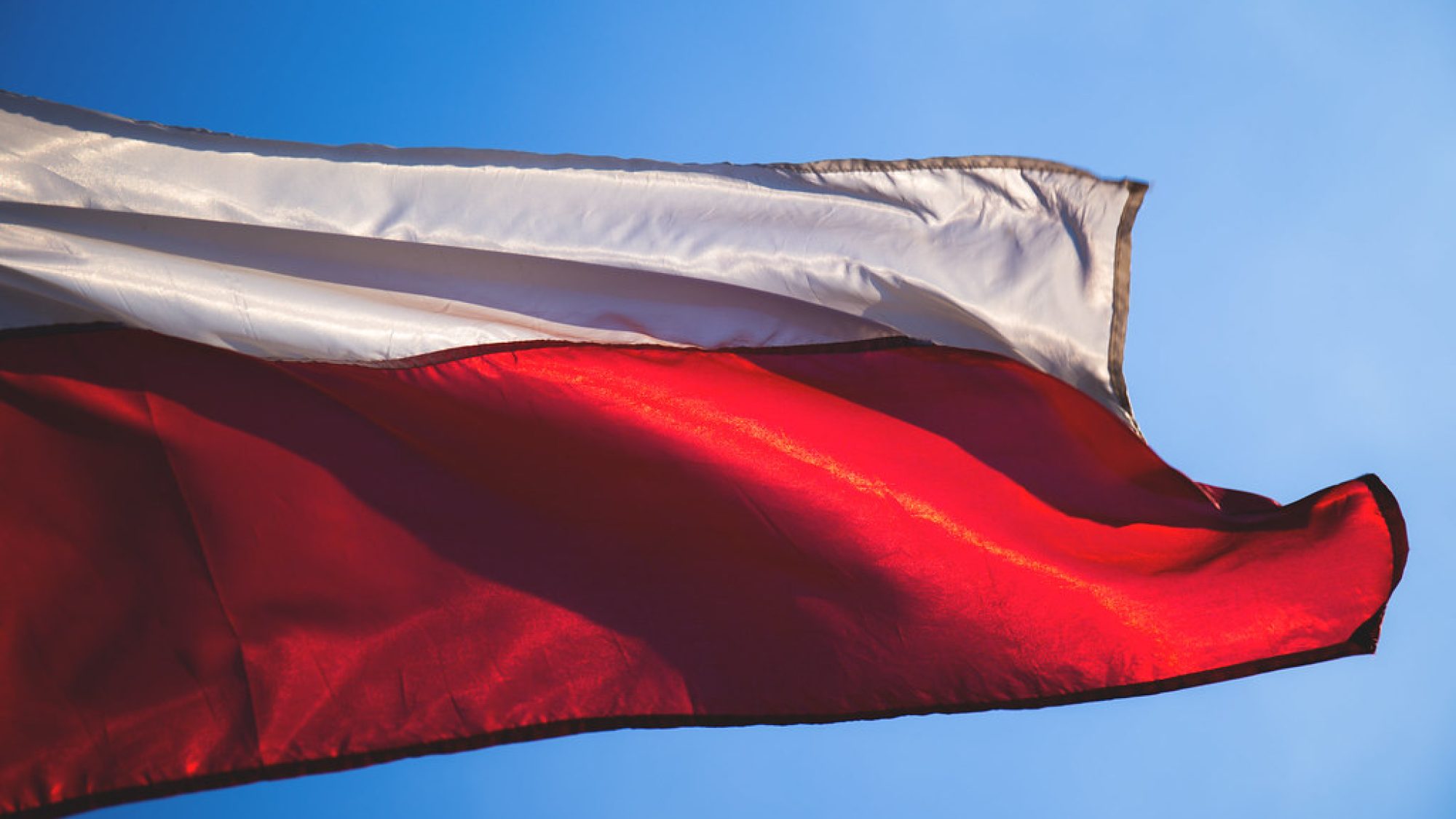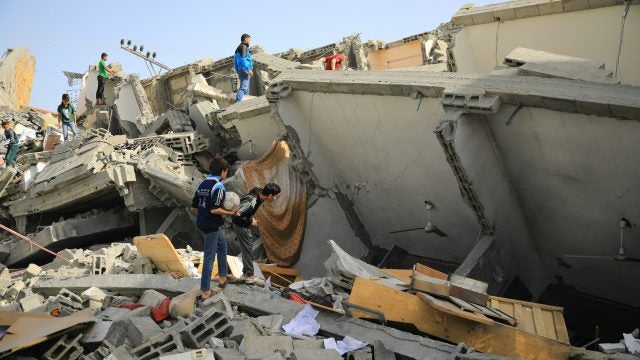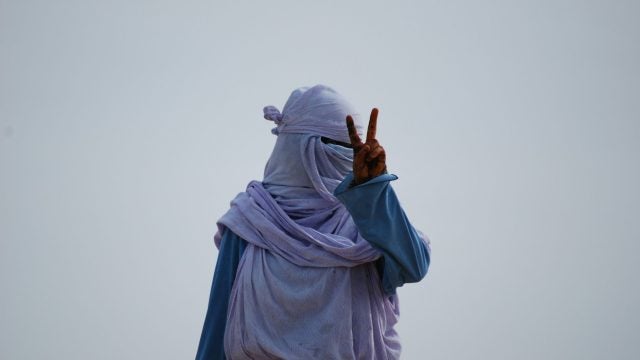
Title: Poland, Russia, and the Securitization of History: The Past as Roadmap for the Future
Divergent historical interpretations play a key role in the ongoing war in Ukraine. As Russia pushes a narrative about the need to “de-nazify” its neighbor, it links the present-day government in Kyiv to the contentious World War II-era legacies of Stepan Bandera and the Ukrainian Insurgent Army. However, Russia’s attempts to turn history into a tool of foreign policy significantly predates the current conflict in Ukraine. Russia and Poland, in particular, have engaged in long-standing disagreements over shared legacies that have markedly affected their bilateral ties in the post-communist period. This article assesses how the historical narratives promulgated by Moscow relative to Warsaw have evolved over time, arguing that the invocation of the past is part of a broader Russian “hybrid warfare” strategy that has meaningful implications for future relations between Russia and its neighbors, as well as the West.
Russia in Ukraine: History, Weaponized
Russian President Vladimir Putin’s incursion into Ukraine has ushered in an Orwellian world of propaganda where up is down and left is right. Historical narratives play an especially significant role in this context. During his February 24, 2022, speech announcing Russia’s invasion, Putin ominously referred to Stalin’s failed attempts to appease Nazi Germany, noting that “we will not make this mistake a second time.” In so doing, he positioned Kyiv and NATO as the aggressors. He also spoke of the need to “de-nazify” Ukraine—a country with a Jewish president who lost family in the Shoah—alleging that “genocide” is being perpetrated against Russians and Russian speakers in the Donbas. Since then, the trope of the “Ukrainian Nazi” has been actively played up by pro-Kremlin apologists. For example, Aleksandr Shchipkov, an academic who serves as an advisor to the Chairperson of the Duma, claimed that the Russian Federation is fighting a war against “Ukrainian-American neo-Nazism.” Political strategist Timofei Sergeitsev, meanwhile, argued that “most likely the majority” of Ukrainians support Kyiv’s “Nazi regime” and that therefore Ukraine must effectively be liquidated (historian Timothy Snyder labelled the piece “one of the most openly genocidal documents” he had ever encountered). Underpinning this is the tendentious assertion that the current government in Kyiv is heir to the radical nationalism and xenophobia of the Ukrainian Insurgent Army (UPA)—a paramilitary organization active in the 1940s that was temporarily allied with Nazi Germany in its fight against the Soviet Red Army—and its chief ideologue, Stepan Bandera.
These references to modern-day Nazis—the ultimate historical epithet—seem divorced from reality when applied to contemporary Ukraine, a country where far-right movements certainly exist but do not wield serious political influence. They start to make sense, however, when one realizes that in Putin’s Russia history has been fully securitized, with how the past is recalled now regarded as an integral component of the country’s “hybrid warfare” tactics. (Revealingly, Russia’s 2021 National Security Strategy includes an entire sub-section dealing with the “Protection of Traditional Russian Spiritual-Moral Values, Culture, and Historical Memory.”) The touchstone for this development is the USSR’s victory in World War II, which, following Soviet practice, continues to be known as the Great Patriotic War (GPW). According to this narrative, the heroic Russian people—who sacrificed more than any other to free Europe from the scourge of Hitler’s Germany—could not possibly today be complicit in unprovoked aggression against a “fraternal” nation like Ukraine. (Indeed, Putin has gone so far as to assert that Ukrainians and Russians represent “one people”.) Actively promoted by the Russian state, this unnuanced glorification of the Soviet war effort allows those who would dare oppose the “ultimate victors” over Nazism to themselves be cast as Nazis.
Poland: Challenges to Russian Historical Memory
Russia’s rhetoric, however, embodies inherent contradictions. What to do, for instance, with ignoble incidents in the USSR’s WWII-era history like the Katyń massacre, the extrajudicial execution of some twenty-two thousand Poles in 1940 by the NKVD (Soviet secret police)? For Russians, knowledge of Stalin’s responsibility for these killings cannot easily co-exist with an official narrative that is uncritical in lauding the Soviet Union’s role in defeating fascism. It is therefore unsurprising that the start of the GPW is dated from Operation Barbarossa, Germany’s June 23, 1941, attack on the USSR, and not Hitler’s September 1, 1939, invasion of Poland, which was followed shortly thereafter by the Red Army’s occupation of eastern Polish territories (as per the secret protocol of the Molotov-Ribbentrop Pact, the non-aggression treaty concluded between Nazi Germany and the USSR on August 23, 1939.) In the presence of such historical tensions, Polish-Russian relations reveal a great deal about how and why the securitization of history takes place.
Regarding the current situation in Ukraine, Warsaw has proven one of Moscow’s fiercest critics. Poland has also taken in a disproportionate number of refugees; as of May 2022, nearly 3.2 million Ukrainians had sought refuge there, a number roughly equivalent to 8 percent of Poland’s total population. Contention between Poland and Russia over how their entwinned past should be understood explains much of the former’s response to the present-day crisis. Poland has long been one of Russia’s most vociferous adversaries in the realm of memory politics, and the competing historical narratives embraced by the two sides have left a legacy of profound distrust between them.
Polish-Russian Disagreements over History
Politics have always dictated how the past is recalled between Poland and Russia. This is illustrated by Putin’s pliable attitude towards the Molotov-Ribbentrop Pact. In an August 2009 article, he termed the agreement “immoral.” But in 2015, against a backdrop of Poland condemning the seizure of Crimea and supporting the imposition of sanctions on Russia, he defended the USSR’s ratification of it as a pragmatic accommodation necessary to ensure the Soviet Union’s security. By 2019, Putin had shifted to suggesting that Poland bore responsibility for the start of the Second World War because it had annexed a small piece of Czechoslovakia after the conclusion of the 1938 Munich Agreement, which allowed Hitler to take control of the Sudetenland (Warsaw was not a signatory to this document, and in 2009 President Lech Kaczyński apologized for Poland’s actions). In making this argument, the Russian president sought to obfuscate the role the Soviet Union played in appeasing Hitler by attempting to shift blame elsewhere. Putin’s remarks were no doubt intended to exact revenge on Polish politicians who championed an EU resolution adopted a few months earlier that assigned co-responsibility to Stalin’s USSR and Hitler’s Germany for the outbreak of WWII.
A similar narrative shift is discernible around the Katyń massacre. After decades of falsely blaming the Germans for the killings, the USSR’s last leader, Mikhail Gorbachev, finally admitted Soviet culpability in April 1990. Russia’s first president, Boris Yeltsin, initially struck a conciliatory tone with the Poles regarding Katyń, but under the influence of a growing “red-brown” (i.e., communist-fascist) coalition at home, eventually adopted a more confrontational stance. Since then, Russia has repeatedly declined to share the full archival record regarding the massacre, labelling it a state secret. This is despite the fact that the quasi-governmental Polish-Russian Working Group on Difficult Matters, a now-defunct body composed of academics from both countries, managed to reach a consensus on the main historical details of this event more than a decade ago.
Further demonstrating the malleable nature of memory politics, immediately after the April 2010 Tu-154 catastrophe that killed Polish President Kaczyński and 95 others traveling to Smolensk, Russia to mark Katyń’s 70th anniversary, Moscow made substantive attempts to improve bilateral relations. These included adopting a declaration in November 2010 that acknowledged Stalin’s guilt for the massacre. However, the possibility of Poland and Russia putting Katyń behind them soon evaporated as geopolitical fault lines remerged over such issues as the 2013-2014 Maidan protests and Moscow’s annexation of Crimea. Reflecting how disagreements about the past breed distrust in the present, Polish-Russian ties were further harmed by wide-spread speculation in Poland that the crash of Kaczyński’s plane may have been an assassination orchestrated by Moscow, despite the official investigation unequivocally ruling it an accident.
Engaging in competitive victimhood (claiming that one side suffered more than another) and “whataboutism” (deflecting criticism from oneself by pointing out the faults of others) are common tactics when it comes to historical disputes. For example, Vladimir Medinskii, who was then Russia’s Minister of Culture, declared in January 2016 that future museum exhibits at Katyń and Mednoe (the latter also a place where victims of the Katyń massacre are interred) would address the 1919-1921 Polish–Bolshevik War given that a “significantly larger” number of Red Army POWs died in Polish custody than there are Poles buried at these sites. He decreed this despite the two locations not having any direct connection to the POWs and there being no credible evidence that Poland waged a deliberate extermination campaign against them. Indeed, until political maneuvering caused Russia to thrust it into the public eye as a counterweight to Polish moral outrage over the Katyń massacre, the Polish-Bolshevik War had been an all-but-forgotten conflict.
Meanwhile, in early 2022 a petition circulated that called on Russian authorities to “dismantle” the monuments to the slain Poles at Katyń and Mednoe (it also questioned whether the killings were actually perpetrated by the NKVD). According to its signatories, who included a goodly number of politicians, this course of action is justified because Poland—which they term a “puppet” of the West—is Russophobic and pro-Nazi, as exemplified by its support for Kyiv. Further linking the present conflict in Ukraine with longer-term historical disagreements between Moscow and Warsaw, on April 14, 2022, Russian media featured images of construction equipment bearing the letters “V” and “Z”—symbols associated with support for the Kremlin—assembling in front of the Katyń memorial, threatening to destroy it.
Future Lessons from the Past
Like Poland and Russia, Poland and Ukraine also differ in how difficult legacies ought to be portrayed (for example, the brutal 1943-1945 ethnic cleansing of Polish civilians in Volhynia and eastern Galicia orchestrated by the UPA), and discord between them on this front has increased in recent years due to the installation of more nationalistically inclined governments in both countries. However, disputes over the past in Polish-Ukrainian relations continue to be treated quite differently than in Polish-Russian relations. While tensions have only grown during the last decade between Poland and Russia over matters such as Katyń, problematic historical episodes between Warsaw and Kyiv have been systematically downplayed even after the right-wing Law and Justice party came to power in 2015 and adopted a more confrontational politics of history. Geopolitical expediency prevails in the latter instance because Poland and Ukraine alike perceive Russia to be the main existential threat facing them, both in strategic as well as mnemonic terms. The irony of this differential instrumentalization of history between the dyads of Poland-Ukraine and Poland-Russia is that the current government in Warsaw is socially conservative and ideologically aligned with Moscow’s positions on such hot-button “culture war” issues as gay rights and secularism. One can well imagine Polish President Andrzej Duda and Putin being allies were it not for the ill-will engendered by decades of historical manipulation.
It is clear that we cannot understand the fraught nature of Russian-Ukrainian dynamics without appreciating the role disputed—and politically contingent—interpretations of history play in Russia’s relations with other states, Poland notable among them. Additionally, it is incumbent upon us to realize that once competing historical narratives are securitized, they tend to take on a zero-sum quality that makes them especially hard to overcome short of one side acquiescing to the views of the other (which, of course, is very unlikely to occur). This is because people tend to be deeply invested in how their pasts and the pasts of their respective nations are depicted, rendering the (mis)use of history an extremely polarizing, if often effective, political tool.
. . .
George Soroka is Lecturer on Government and Associate Director of Undergraduate Studies in Harvard University’s Government Department. Focusing on the post-communist region, his research revolves around the political implications of memory, religion, and liberalism. His work has recently appeared in East European Politics and Societies, Foreign Affairs, Journal of Democracy, Problems of Post-Communism, and Religions.
Image Credit: Flickr; Public Domain
Recommended Articles

This piece examines the UK government’s proscription of Palestine Action under the Terrorism Act, situating it within a broader trend of shrinking space for public dissent. It argues that the…

This article analyses the distortions of the International Humanitarian Law (IHL) notion of proportionality in the context of the Israel-Gaza war. It discusses Israel’s attempts to reinterpret proportionality to justify…

The escalating women’s rights crisis in Afghanistan demonstrates a gap in international legal protections of the rights of women and girls. The international community should fill this gap by making…